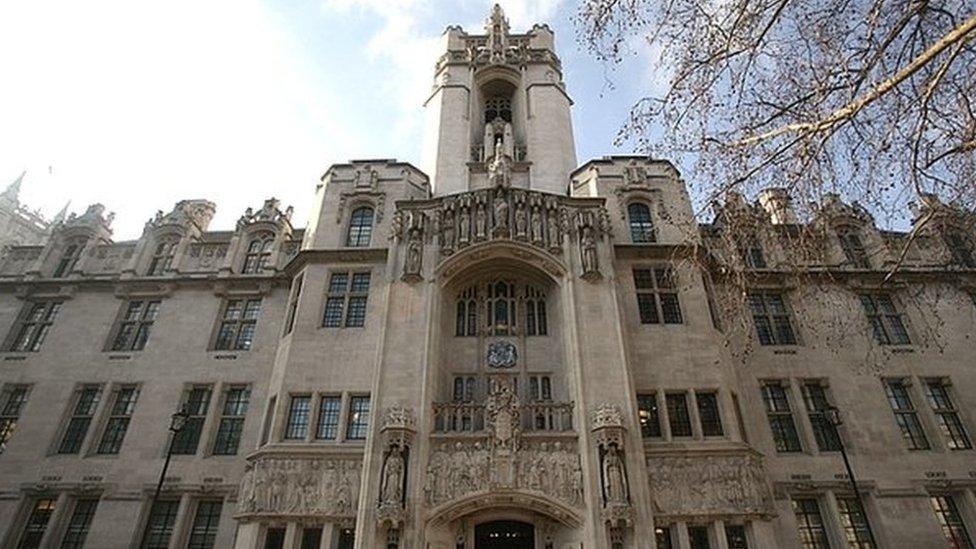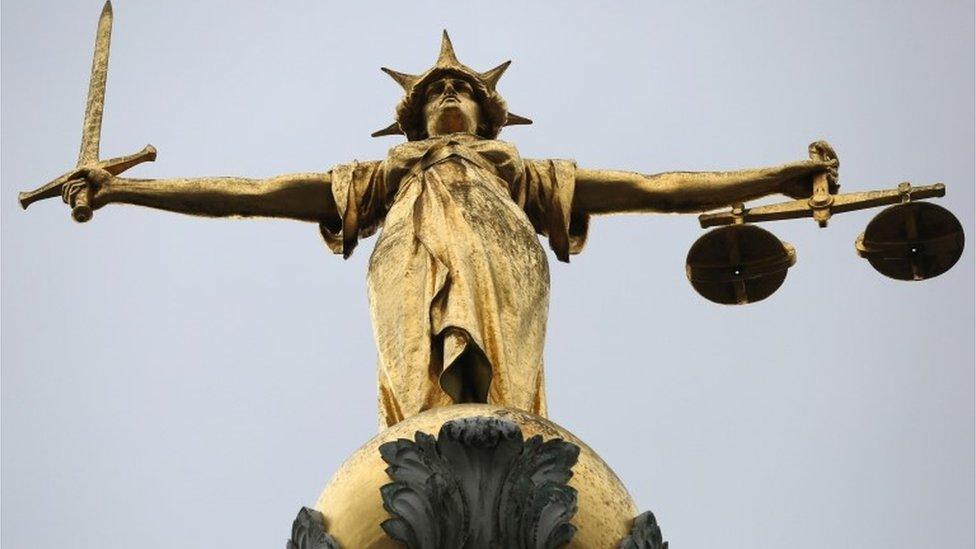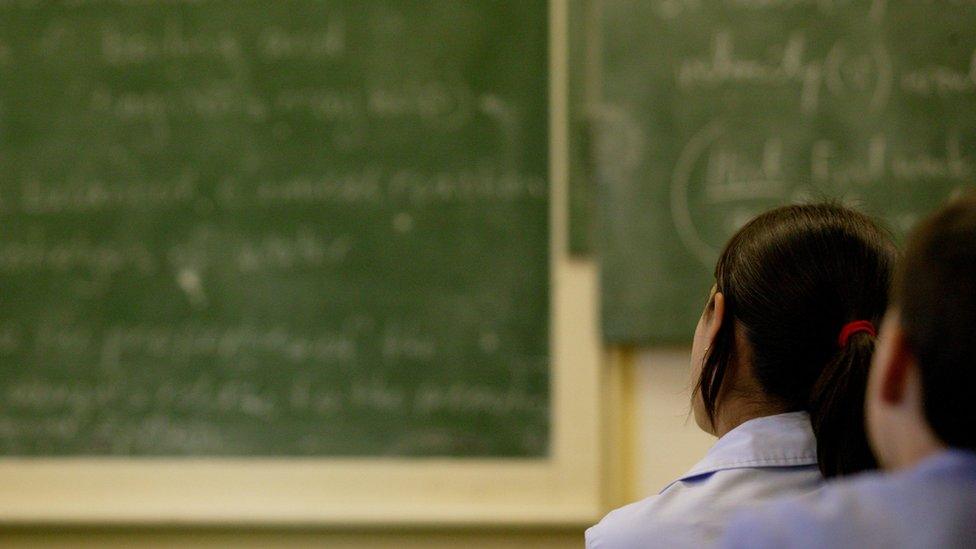Supreme Court rejects government appeal on criminal records scheme
- Published

The Supreme Court has ruled in favour of three people who claimed their lives were blighted by past minor criminal convictions.
The judges found the way the criminal records are disclosed to employers infringed human rights.
The government will have to consider reform of the system, said BBC legal affairs correspondent Clive Coleman.
The charity Unlock said the ruling stands to affect thousands of people with old and minor criminal records.
Christopher Stacey, co-director of Unlock, said that criminal checks leave many people "unnecessarily anchored to their past".
He claims that in the past five years alone, more than a million youth criminal records were disclosed on standard or enhanced Disclosure and Barring Service (DBS) checks that related to offences from more than 30 years ago.
Supreme Court justices found that the criminal records disclosure scheme was "disproportionate" in two respects.
These were that all previous convictions should be disclosed, however minor, where the person has more than one conviction, and also in the case of warnings and reprimands issued to young offenders.
They announced their decision on Wednesday following the government challenge against a Court of Appeal judgment in 2017 over the legality of the scheme.
The appeal ruling backed the High Court's 2016 finding that the scheme was "not in accordance with the law" within the meaning of Article 8 of the ECHR, which protects the right to private life.
The children's charity Just for Kids Law, which brought one of the cases to court, had argued that DBS checks fail to treat children differently to adults.
Its CEO Enver Soloman said the "landmark judgement" would benefit thousands of children issued with cautions each year, a disproportionate number of whom are from Black and Minority Ethnic backgrounds.
"There is now an overwhelming view shared by the higher courts and MPs that the government should act immediately to ensure no child who is given a caution ends up with a criminal record that stigmatises them for life."
Shoplifting and 'dares'
One of the cases involved a woman, referred to in court as P, who was charged with shoplifting a 99p book in 1999 while suffering from untreated schizophrenia.
She was bailed to appear before magistrates 18 days later, but failed to attend court, which meant she ended up with two convictions - for which she received a conditional discharge.
P wants to work as a teaching assistant, having previous experience of teaching, and has sought voluntary positions in schools. However, with each application she is required to disclose her historic convictions, which has the effect of leading to the disclosure of her medical history to explain them.
In another case, G was arrested at the age of 13 for sexually assaulting two younger boys, with offences involving sexual touching and attempted intercourse.
Police records indicated the sexual activity was consensual and carried out as "dares", in the form of sexual curiosity and experimentation on the part of all three boys.
The Crown Prosecution Service decided it was not in the public interest to prosecute. G received a police reprimand in Sept 2006 and has not offended since.
In 2011, when working as a library assistant in a local college, he was required to apply for an enhanced criminal records check because his work involved contact with children.
The police proposed to disclose the reprimand with an account of the mitigation. As a result, G withdrew his application and lost the job. He has since felt unable to apply for any job requiring an enhanced criminal records check.
Their cases were heard alongside that of W, a man who - more than 35 years ago - was convicted aged 16 of actual bodily harm, and given a two-year conditional discharge.
Due to the categorisation of this type of offence, under the current rules the record will never come off his standard or enhanced DBS check. However, the justices allowed the government's appeal regarding W. Those involved cannot be named for legal reasons.

Bob's story: 'Mucking about'

Bob Ashford, 65, from Somerset, says he struggled to get a job after being convicted of trespassing and possession of an offensive weapon when he was 13 years old.
"I was mucking about on a railway embankment with a group of lads and one of them had an air pistol," he told the BBC.
"It wasn't until I finished university and started applying for jobs I realised the impact this was going to have because I had to disclose these offences."
He said he did eventually have a successful career in the criminal justice system but as recently as six years ago he had to stand down as a candidate to be a police and crime commissioner after his past convictions were disclosed.
He welcomed the Supreme Court ruling as a "step in the right direction" but said there should be a "complete review" of the whole DBS system.

'Barrier to rehabilitation'
The Justice Committee, which published an inquiry in July, external, welcomed the ruling.
Bob Neill MP, chair of the committee, said the disclosure system is "inconsistent with the aims of the youth justice system, with mistakes made as a teenager able to follow someone around for decades, creating a barrier to rehabilitation, and preventing large numbers of people from gaining access to employment, education, and housing".
Corey Stoughton, advocacy director of Liberty which represented P, said: "P made a mistake a long time ago and has been unfairly punished ever since.
"Using overly broad bureaucratic rules that deny people meaningful careers by forcing them to to carry a scarlet letter for life is both cruel and pointless."
Mr Stacey from Unlock, which intervened in the case, urged the government to take "prompt and considered action" and carry out a fundamental review of the wider DBS system.
- Published22 January 2016

- Published17 July 2018
